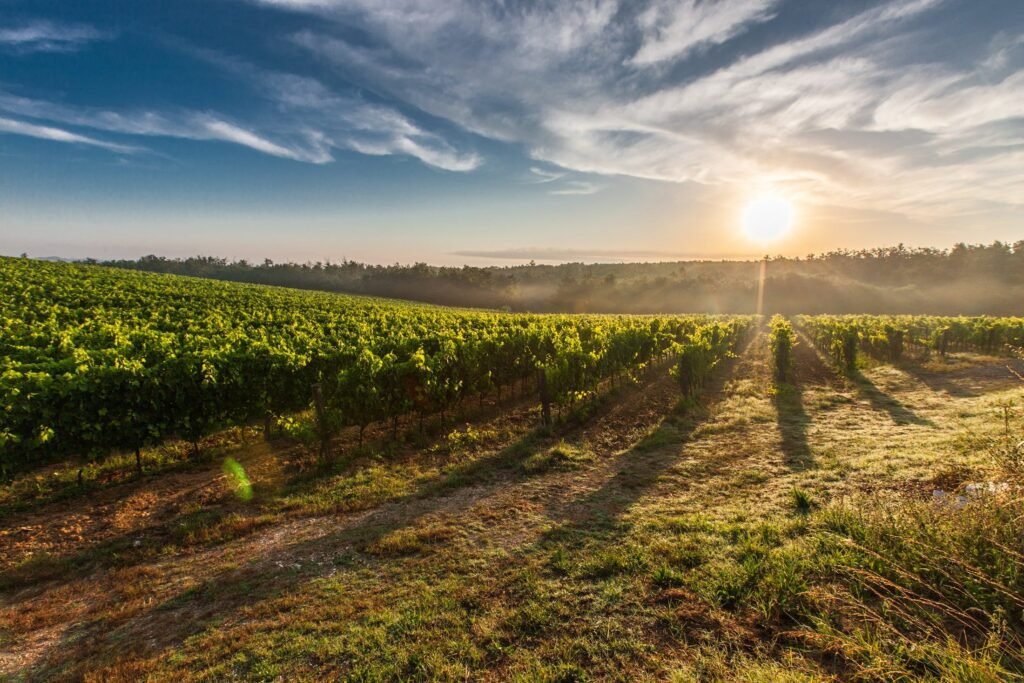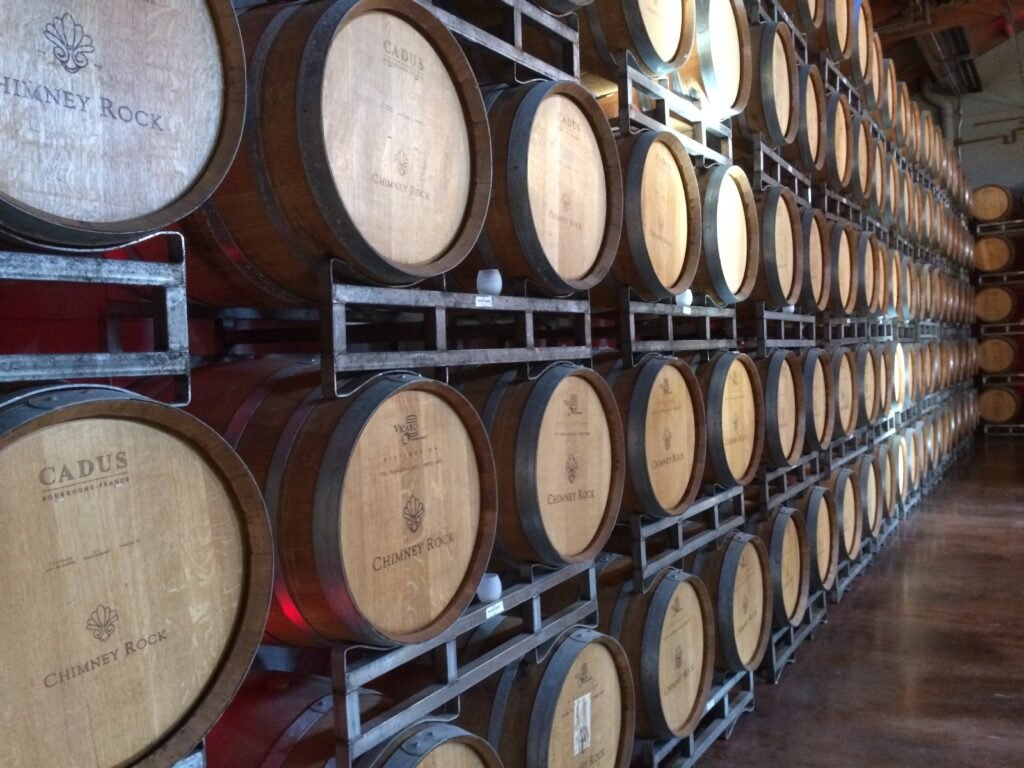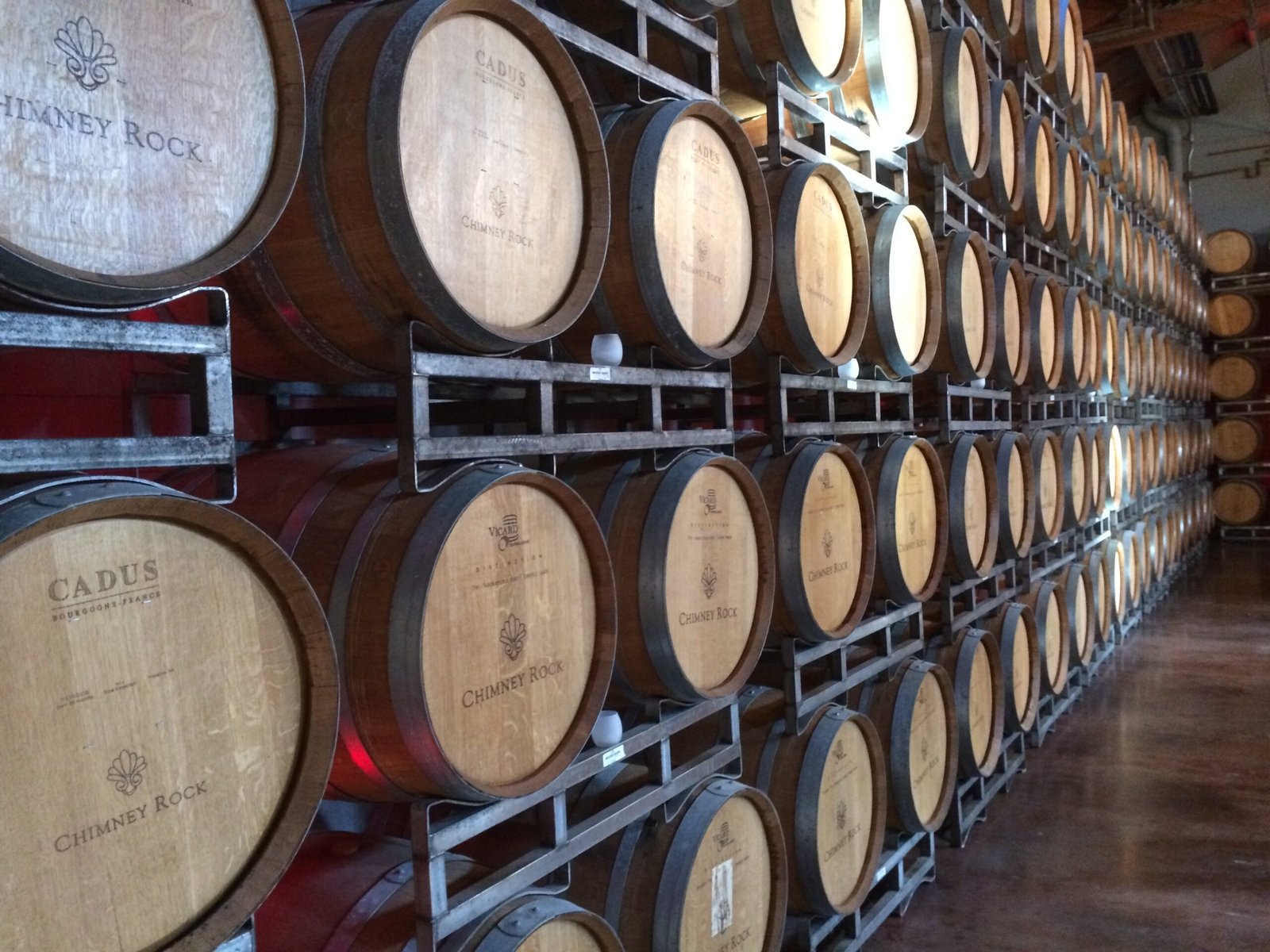Hey there! Get ready to embark on a tasting adventure like no other with Wine Folly’s latest video, “Learn by Tasting: Exploring Natural Wines.” In this episode, the challenge is to identify a unique wine that defies all expectations and breaks the traditional mold. Don’t worry if you’re not a master sommelier – this blind tasting will stump even the experts! The wine in question is a natural blend of 74% Merlot, 19% Petit Sirah, and 7% Chardonnay, resulting in a vibrant red with enticing aromas of Fragrant Rose, Blueberry, Sour Cherry, Mushroom, and Sour Patch Kids. Get ready to uncover the mysteries behind this unconventional wine as we delve into its production, characteristics, and the fascinating world of natural wines. So, grab a glass and join the journey – it’s time to let your taste buds lead the way!
Throughout the video, you’ll witness the excitement and intrigue as the wine is analyzed and evaluated. From the color and aroma to the unique flavors, each sip reveals something new and unexpected. Discover the secrets behind the wild yeast, the oak aging, and the absence of earthiness that point to the wine’s origin in a New World wine region. And if that’s not enough, you’ll also get to hear from the winemaker himself, Derek Trowbridge, as he shares the story behind the 2020 Impulse by Old World Winery. With its blend of Merlot, Chardonnay, and Petit Sirah sourced from renowned California regions, this wine embodies the spirit of breaking conventional winemaking traditions. So, buckle up and get ready to expand your wine knowledge as we venture into the mesmerizing world of natural wines. Cheers to experiencing the unexpected and embracing the delights of unique flavors!
What is Natural Wine?
Introduction to natural wines
Natural wine has gained significant popularity in recent years, captivating wine enthusiasts with its unique characteristics and unconventional approach to winemaking. Unlike traditional wines, natural wines are made with minimal intervention, allowing the grapes to fully express their terroir and the winemaker’s artistic vision. In this article, we will explore the world of natural wine, from its definition and characteristics to its rising popularity in the wine industry. Join us on this journey of discovery and appreciation for the wild and unconventional.
Definition and characteristics of natural wines
Natural wines are often described as wines made with minimal intervention, using organic or biodynamically grown grapes that are fermented with native yeasts. The main goal of natural winemakers is to produce wines that reflect the true essence of the grapes and the land from which they come. As a result, natural wines can exhibit a wide range of flavors and aromas, often showcasing the unique characteristics of the specific vineyard and grape variety.
Characteristics of natural wines include lower levels of sulfur dioxide, which is a common preservative in conventional winemaking. The absence of chemical additives and excessive manipulations allows the wine to evolve and develop naturally, resulting in a more authentic and expressive tasting experience. Natural wines are typically unfiltered and unfined, which can result in a cloudy appearance and sediment in the bottle.
The rising popularity of natural wines
In recent years, natural wines have experienced a surge in popularity among wine enthusiasts, sommeliers, and even casual consumers. This growing interest can be attributed to several factors. First and foremost, natural wines offer a unique and adventurous tasting experience. The absence of additives and manipulations allows for a pure and unadulterated expression of the grapes, creating wines that are often vibrant, complex, and full of character.
Additionally, the rising popularity of organic and sustainable practices in agriculture has had a significant impact on the wine industry. Many consumers are seeking out products that align with their values, and natural wines provide a compelling option for those who prioritize environmental sustainability and minimal chemical intervention.
Furthermore, natural wines are often associated with small-scale, independent winemakers who focus on quality and craftsmanship rather than mass production. This emphasis on artisanal winemaking resonates with consumers who appreciate the human touch and the stories behind the wines they enjoy.
As a result of these factors, natural wines have become more readily available in wine shops, restaurants, and even online platforms. The demand for natural wines has prompted winemakers in both traditional and emerging regions to experiment with natural winemaking techniques, contributing to the overall growth and diversification of the natural wine movement.
Exploring Natural Wine
Blind tasting of natural wine
To truly understand the world of natural wines, one must embark on a tasting journey. Blind tasting natural wines can be an intriguing and educational experience, as it allows you to focus solely on the sensory aspects of the wine without any preconceived notions or biases.
Blind tasting involves evaluating a wine without knowing its identity, grape variety, or region of origin. This approach encourages tasters to rely solely on their senses to analyze and appreciate the wine in front of them. Blind tasting natural wines can be particularly interesting, as their unique characteristics and unconventional flavors can challenge and surprise even the most experienced tasters.
Analyzing the aroma
One of the most important aspects of blind tasting is analyzing the aroma of the wine. Natural wines often exhibit a wide range of aromas, from vibrant fruit notes to earthy and funky characteristics. Taking the time to carefully sniff and identify the aromas can provide valuable insights into the winemaking process and the grape varieties used.
In the case of the mystery wine, the aroma was described as “fragrant rose, blueberry, sour cherry, mushroom, and sour patch kids.” This complex and diverse set of aromas hints at a blend of grape varieties, as no single variety would typically exhibit such a wide range of aromas.
Identifying the grape varieties
Blind tasting natural wines can be particularly challenging when it comes to identifying the grape varieties used. Since natural winemakers often blend different grape varieties to achieve the desired flavor profile, it can be difficult to pinpoint the exact grapes in the glass.
In the case of the mystery wine, it was revealed to be a blend of 74% Merlot, 19% Petite Sirah, and 7% Chardonnay. This unexpected combination highlights the winemaker’s creativity and willingness to experiment with unconventional blends.
Understanding the winemaking process
One of the defining characteristics of natural wines is the minimal intervention approach to winemaking. Natural winemakers rely on native yeasts, which are present on the grape skins, to initiate fermentation. This allows for a more spontaneous and unique fermentation process, resulting in wines with distinct flavors and aromas.
Furthermore, natural winemakers often avoid the use of additives and manipulations such as filtration and fining. This hands-off approach allows the wine to retain its natural flavors and textures, providing a more authentic representation of the grapes and the terroir.
Determining the wine region
Blind tasting natural wines can be a captivating exercise in discovering the wine’s origin. While wines from traditional wine regions often exhibit a certain typicity or consistency in style, natural wines can challenge these expectations and blur the lines between regions.
In the case of the mystery wine, the absence of earthiness on the nose led to the speculation that it might originate from a New World wine region. However, blind tasting alone might not be sufficient to accurately determine the exact region, as natural winemakers often prioritize the expression of the grapes over regional typicity.

Unveiling the Mystery Wine
The uniqueness of the mystery wine
The mystery wine, known as the 2020 Old World Winery “Impulse Red” from North Coast, CA, stands out for its unconventional approach and unexpected flavor profile. This natural wine breaks the mold and challenges traditional winemaking conventions, resulting in a truly unique and intriguing tasting experience.
Composition of the blend
The mystery wine is a blend of 74% Merlot, 19% Petite Sirah, and 7% Chardonnay. This unexpected combination highlights the winemaker’s creativity and willingness to deviate from traditional blends. The addition of Chardonnay to thin out the tannins and enhance the overall balance of the wine showcases the winemaker’s expertise in crafting a harmonious blend.
Tasting notes and flavor profile
The flavor profile of the mystery wine is described as explosively aromatic, with notes of fragrant rose, blueberry, sour cherry, mushroom, and sour patch kids. This complex array of flavors reflects the diversity and character of the blend, showcasing the unique expression of each grape variety.
The wine’s taste is characterized by its sourness, followed by floral, spiced, and fruity notes on the finish. This dynamic and multifaceted flavor profile adds to the intrigue and excitement of exploring natural wines.
Wine aging in oak
A whiff of baking spice detected in the aroma indicates that the wine was aged in oak. Oak aging can impart additional complexity and depth to the wine, enhancing its overall structure and flavor profile. The use of oak barrels in the winemaking process is a common technique in both traditional and natural winemaking, contributing to the wine’s development and maturation.
Identifying the wine region
Blind tasting alone might not be sufficient to accurately determine the wine region of the mystery wine. However, in the case of the 2020 Old World Winery “Impulse Red,” it hails from the North Coast of California, specifically the Sonoma County region. Sonoma County is renowned for its diverse terroir and high-quality wines, making it a fitting home for this unconventional and expressive natural wine.
Breaking the Rules
Blind tasting as a detective work
Blind tasting is often likened to being a detective, as tasters must carefully analyze the clues provided by the wine to unravel its identity. This exciting and challenging exercise allows wine enthusiasts to sharpen their sensory skills and gain a deeper appreciation for the complexities of wine.
Typicity in blind tasting
Typicity, or the consistency of style associated with a particular wine region, is an important concept in blind tasting. Traditional blind tasting exams often focus on identifying classic wines from well-known regions based on their typicity.
However, natural wines challenge the concept of typicity by prioritizing the expression of the grapes and the terroir over adhering to a specific regional style. This deviation from typicity adds an element of surprise and unpredictability to blind tastings, making them all the more exciting and intriguing.
Introduction to natural wine movement
The natural wine movement represents a global trend in the wine industry, characterized by a departure from conventional winemaking practices and a focus on minimal intervention and organic farming methods. Natural winemakers prioritize transparency, sustainability, and authenticity, crafting wines that are a true reflection of the vineyard and the grapes.
The movement has gained significant traction in recent years, appealing to a diverse range of consumers who seek wines that align with their values and offer a unique tasting experience. Natural wines have shaken up the wine industry, challenging the status quo and inspiring both winemakers and wine enthusiasts to explore the wild and unconventional.
Deviation from traditional winemaking
Natural winemaking represents a departure from the conventional techniques and interventions commonly employed in wineries. Natural winemakers aim to minimize the use of chemicals, additives, and manipulations in the winemaking process, allowing the grapes to express their true character and the unique qualities of the vineyard.
By embracing natural winemaking techniques, winemakers can create wines that are pure, vibrant, and expressive. This departure from tradition encourages innovation and creativity, fostering a dynamic and diverse wine landscape.
Exploring natural wine as a trend
The rising popularity of natural wines can be attributed to their appeal as a trend and cultural movement. Natural wines have captured the attention of wine enthusiasts who seek wines that are authentic, sustainable, and reflective of their terroir. The trend towards natural wines has prompted winemakers worldwide to experiment with natural winemaking techniques, contributing to the overall growth and evolution of the natural wine movement.
As consumers become more educated and discerning in their wine choices, the demand for natural wines is expected to continue to rise. This trend has the potential to shape the future of winemaking, with new regional wines and blind tasting experiences emerging as a result.

Meet the Wine Maker
Introduction to Derek Trowbridge
Derek Trowbridge, the winemaker behind the 2020 Old World Winery “Impulse Red,” is a passionate advocate for natural winemaking. As the owner of Old World Winery, one of the oldest natural wineries in California, Derek has dedicated himself to crafting wines that reflect the true essence of the grapes and the land.
Old World Winery and its history
Old World Winery has a rich history that spans generations. The winery was established by Derek’s great-grandfather in the 1930s, and it has remained family-owned and operated ever since. The winery’s commitment to natural winemaking and sustainable practices has been passed down through the generations, creating a legacy of quality and craftsmanship.
Regenerative winemaking practices
Derek’s approach to winemaking goes beyond organic and sustainable practices. He embraces regenerative winemaking, which focuses on improving the health of the soil and the surrounding ecosystem. By farming with mulch underneath the vines and practicing no-till techniques, Derek minimizes soil disturbance and promotes the sequestration of carbon from the atmosphere.
Sustainable farming techniques
In addition to regenerative winemaking, Old World Winery employs sustainable farming techniques. These include using organic methods to control pests and diseases, minimizing the use of synthetic fertilizers, and prioritizing the health and biodiversity of the vineyard ecosystem. By nurturing the land and respecting nature’s rhythms, Derek ensures that his wines embody the principles of sustainability and environmental stewardship.
Impulse wine and its unique qualities
The 2020 “Impulse Red” is a testament to Derek’s expertise and dedication as a winemaker. This unique blend of Merlot, Petite Sirah, and Chardonnay showcases his ability to create harmonious and balanced wines that defy expectations. The wine’s explosive aromas, complex flavor profile, and unconventional composition exemplify the spirit of natural winemaking and the endless possibilities it offers.
The Future of Natural Wine
Increasing popularity and market presence
As natural wines continue to captivate wine enthusiasts and gain recognition in the wine industry, their popularity and market presence are expected to increase. Consumers are increasingly seeking out authentic and sustainable products, and natural wines fit the bill. The growing demand for natural wines has prompted retailers, restaurants, and online platforms to expand their selections, offering a wider range of options to consumers.
New regional wines and blind tasting
The rise of natural wines has the potential to create new regional wines that will be blind tasted in the future. As winemakers experiment with natural winemaking techniques, they will continue to push the boundaries and challenge traditional notions of typicity and regional styles. Blind tastings of natural wines will become even more exciting and unpredictable as these new traditions and expressions emerge.
The potential for new winemaking traditions
The natural wine movement has ushered in a new era of winemaking, characterized by creativity, authenticity, and sustainability. As natural wines gain momentum, winemakers are inspired to innovate and experiment, creating new winemaking traditions that embrace minimal intervention and express the unique qualities of the grapes and the land.
This innovation has the potential to shape the future of the wine industry, fostering a more diverse and dynamic landscape. As consumers seek out wines that offer a unique and authentic experience, winemakers will continue to push boundaries and challenge conventions, leading to the emergence of exciting new winemaking traditions.
The growth of natural wine movement
The natural wine movement is not just a passing trend but a cultural shift in the wine industry. The increased popularity and market presence of natural wines indicate a growing acceptance and appreciation for wines that embody the principles of sustainability, transparency, and expression.
As more consumers discover the joys of natural wines and winemakers continue to embrace natural winemaking techniques, the movement will only continue to grow. Natural wines have the potential to redefine the wine industry, inspiring a generation of winemakers and wine enthusiasts to explore and appreciate the wild and unconventional.
Joining the Wine Folly Club
For those who wish to dive deeper into the world of natural wines and expand their tasting experiences, joining the Wine Folly Club is a great way to stay informed and enjoy exclusive wines. The Wine Folly Club offers access to unique and limited-production wines, including the 2020 Old World Winery “Impulse Red.” By becoming a member, wine lovers can embark on a journey of exploration and discovery, learning more about natural wines and supporting the winemakers who craft them.

Conclusion
Learning about natural wines is not just an intellectual exercise but a sensory and experiential journey. Through blind tasting, analyzing aromas, identifying grape varieties, and understanding the winemaking process, we can gain a deeper appreciation for the uniqueness and diversity of natural wines.
The mystery wine, the 2020 Old World Winery “Impulse Red,” serves as a shining example of the possibilities and excitement that natural wines offer. Its unconventional blend, explosive aromas, and complex flavor profile challenge traditional winemaking conventions and captivate the senses.
By embracing natural winemaking techniques and deviating from typicity, winemakers like Derek Trowbridge are breaking the mold and paving the way for a more adventurous and innovative wine industry. The rise of natural wines signals a shift in consumer preferences and a growing demand for authentic, sustainable, and expressive wines.
As we continue to explore and enjoy natural wines, let us embrace the wild and unconventional, appreciating the role that natural wines play in enriching the wine industry and our tasting experiences. Cheers to the continued growth and enjoyment of natural wines!

Franco Deville, an esteemed wine connoisseur and author, is the visionary behind “Wines of Madeira.” His extensive background in viticulture and wine tasting enriches his detailed guide on Madeira wines. Franco’s dedication to traditional winemaking and innovative approaches has established him as an influential voice in the wine community.

